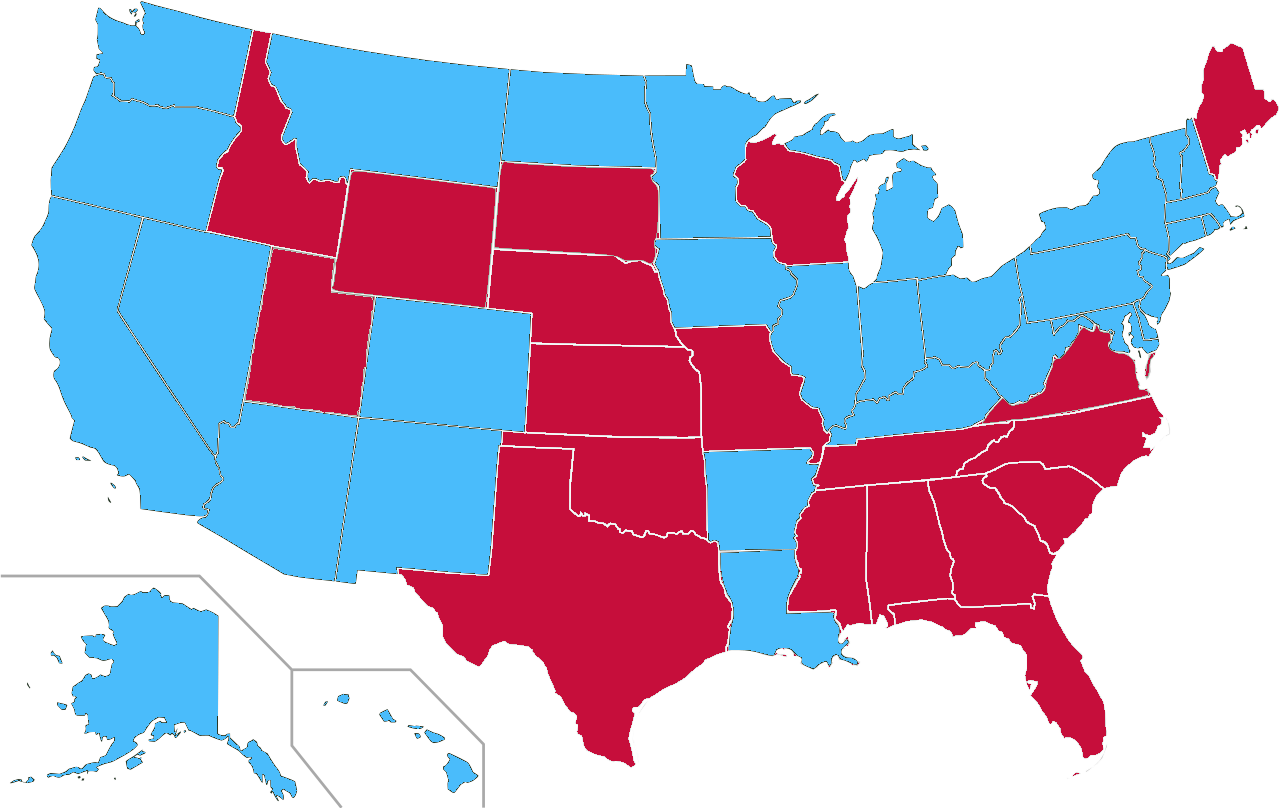
Trump’s disdain for the Affordable Care Act (ACA) and congressional Republicans’ salivation at the chance to repeal it might be troubling if you, like me, rely on an ACA marketplace plan for your health-care coverage. The negative attention paid to the ACA has, ironically, made Americans more interested in understanding the act. Now, for the first time since polling about it began, more Americans approve than disapprove of the Affordable Care Act, also known as Obamacare. Likewise, the number of enrollees has risen since Trump was elected.
With all the confusion hanging in the air, you may be wondering what is actually going to happen to your plan. If you are one of the 11 million who signed up for Medicaid under the Medicaid-eligibility expansion that was part of Obamacare, will your plan be rolled back? Are we all going to be thrown off our plans and sent to death camps to be hunted for sport by Eric Trump Jr.?
The answer to these questions, in order: 1) very little; 2) no; 3) not quite yet.
Why will almost nothing change? The short answer is that Republicans have their hands tied when it comes to meddling with the ACA. First, the ACA is a very free-market-oriented plan that uses private companies to achieve its goals. Republicans generally like outsourcing government to unaccountable private corporations so that rich CEOs can profit off of taxpayer dollars; that’s in their DNA. There’s a reason why the prototype for the ACA was created by conservative think tanks in the 1980s and why a similar model was put into place in Massachusetts by former Republican governor Mitt Romney. They’re not going to mess with this model too much.
And second, kicking millions of Americans off of their health plans is political suicide — the Republicans know this and won’t do it outright. They can, and almost certainly will, chip away at the cheapest plans to try to make them worse, more expensive and with higher deductibles. Meanwhile, the GOP is stuck between a rock and a hard place because Trump insists that he won’t sign a replacement plan unless it grants “insurance for everyone”; moreover, some powerful Republican senators, like Rand Paul (KY) and Tom Cotton (AR), insist that they won’t approve any bill that doesn’t come with a replacement plan.
So with these preconditions in place, there is little movement as to what can actually change. The Republicans could drop the individual mandate and almost certainly will; without it, most plans in the ACA marketplace will either become more expensive or have higher deductibles and worse coverage, and this very well may happen to your plan — although if it does, it will be a few years before it kicks in.

The reason why blue-staters are probably going to be OK, while red-staters might not, has to do with how the plan is implemented. When Obamacare launched, part of the idea was that it would expand the number of people who could qualify for the Medicaid expansion — in other words, a lot of low-income folks who, previously, weren’t quite poor enough to qualify for Medicaid suddenly became eligible. But the plan was based on an opt-in model: governors had to decide if they wanted the expansion. So Republican governors, for the most part, said no out of petty spite, leaving many of their most vulnerable in the lurch. Democratic governors all said yes.
[As an aside, this means that when you hear stories of Obamacare “not working” or poor people who can’t afford it, they’re almost always working-class people in red states whose governors refused the free money the federal government was offering. Ironically, the program “doesn’t work” in red states because these Republican governors refused to accept the Medicaid expansion. But because the public doesn’t understand the policy minutiae, most don’t realize that in these cases, the shortcomings of the ACA are often the fault of Republicans, not Obama.]
Now, for the really bad news: one key policy victory of Obamacare was that it mandated that all insurance companies, regardless of the provider, provide free reproductive care to women — including birth control, maternity care and free mammograms. That provision has already been stripped by the GOP. That clause also included a provision that women could not be charged more for their health-care plans than men; that egalitarian clause, too, is out the window.
The current, perhaps most likely Republican replacement plan to be passed is the Patient Freedom Act. Its provisions include “opening up” the state-by-state healthcare market to interstate competition and dropping the “coercive” individual mandate. The problem with this idea, as I’ve written about before, is that without the mandate, healthy people won’t sign up, meaning the only affordable options for sick people who need healthcare badly will be the kinds of high-deductible, barely-existent health-care plans that Obamacare sought to eliminate. These include HSAs, or health savings accounts, which give you a pittance of money that won’t cover major health issues.
This is typical for the GOP playbook: some people’s monthly health-insurance premiums may drop now, making it seem like they’re saving money, but later down the road, when a big medical crisis happens, they’ll be stuck with a cheap plan that either comes with high deductibles or offers little coverage. It is akin to the Iraq War or the Bush tax cuts, which seemed like quick and cheap solutions in the beginning but ended up costing the country trillions down the road. Same principle, same party.







